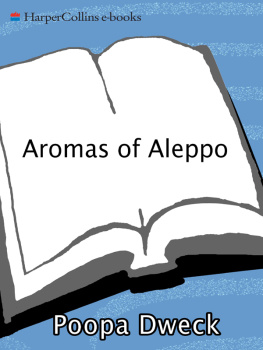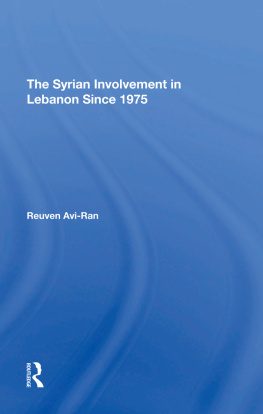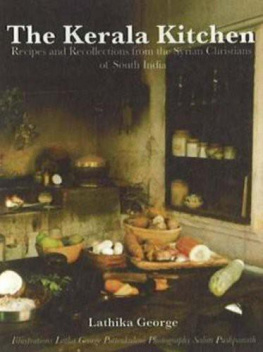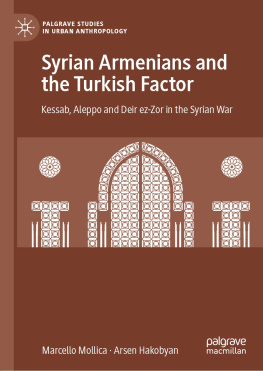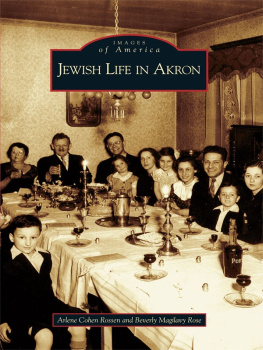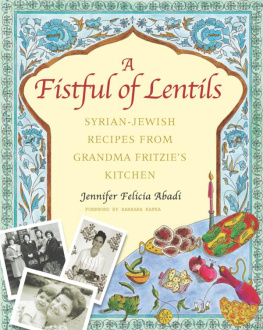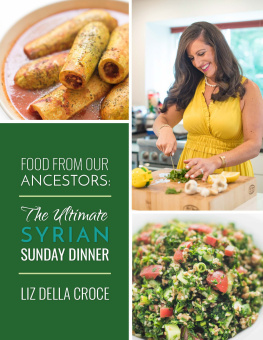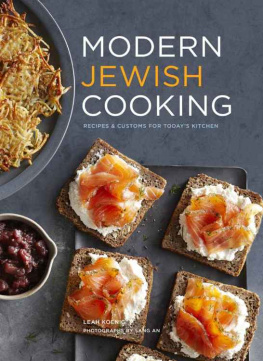In memory of my beloved son
JESSE DWECK 

19852003

A good heart is always celebrating
Proverbs 15:15

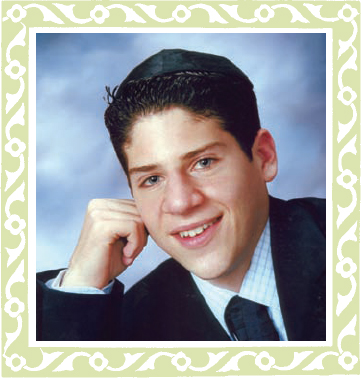
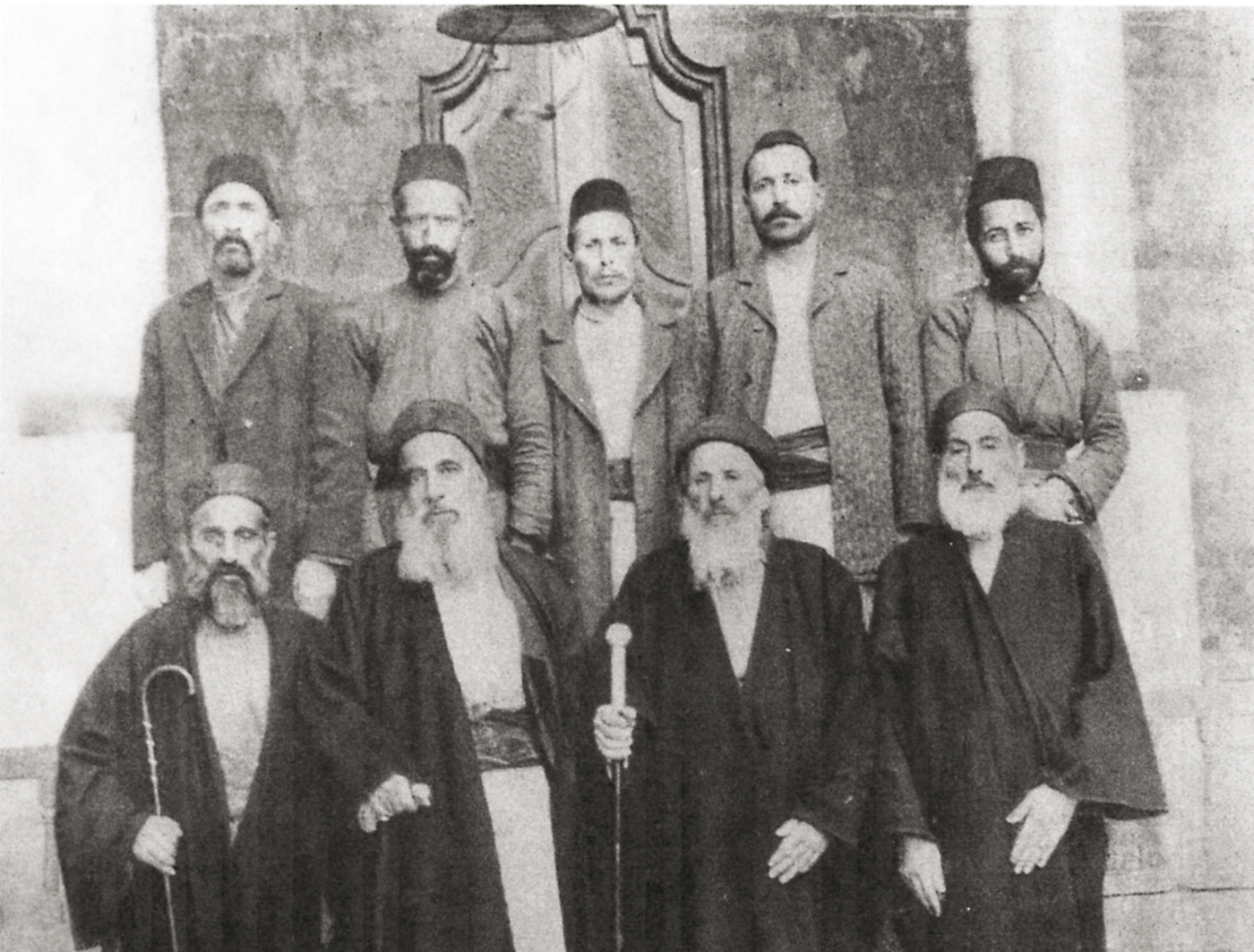
Rabbis from Aleppo, Syria (courtesy of Joseph Segal)
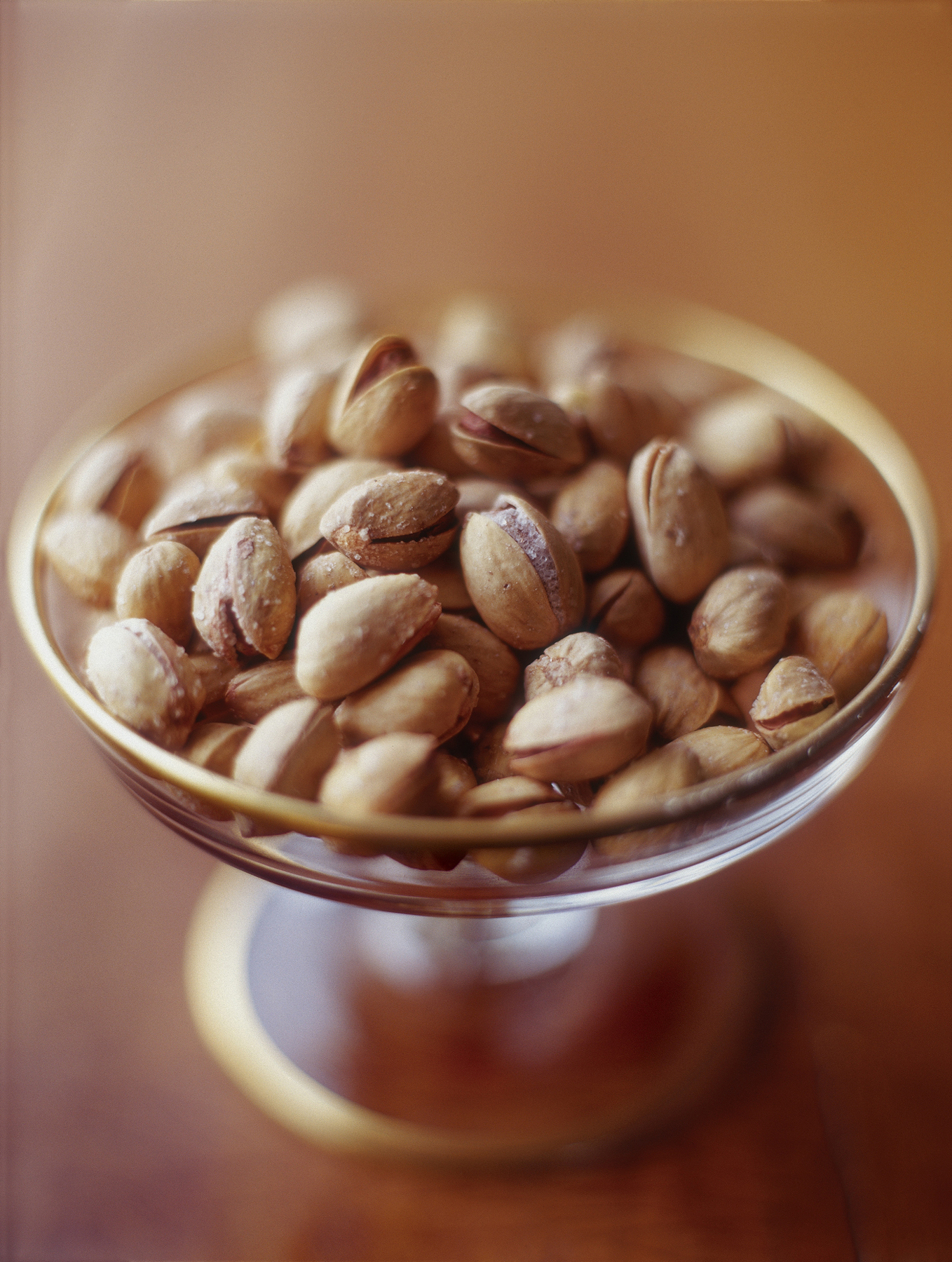
V isit an Aleppian Jewish home on any given morning, and you can identify the day of the week by the richly perfumed air wafting from the busy kitchen. If you detect the nuttiness of lentils suffused with sweet onions, it is Thursday and mujedrah (). While these dishes were developed long ago in Aleppo, an ancient city in the northwestern plains of Syria, Aleppian Jewish cooks around the world are still passionately preparing them today.
The kitchen is the soul of the Aleppian Jewish home, and I feel truly honored and blessed to be able to bring you Aromas of Aleppo, which conveys the warmth and love at the heart of our cuisine. I have been a lifelong member of the community of Aleppian Jews in New York, but my interest in our cuisine took a momentous turn during the mid-1970s when I got involved in documenting the recipes of Jewish Aleppo with a group of like-minded community cooks. Most Syrian recipes were not written down; they existed only in the minds of older cooks. My peers and I wondered whether our kids would follow our mothers and grandmothers approach to cooking and maintain the deep understanding of our unique customs.
America being the assimilative force it is, we were determined to ensure that the centuries-old foodways and traditions of Jewish Aleppo would continue for generations to come. Under the auspices of the Sephardic Womens Organization, in 1976 we self-published a collection of Aleppian Jewish recipes called Deal Delights. This humble red vinylbound book became an instant success in Sephardic communities around the world. It raised tens of thousands of dollars for charity. Two more volumes followed. All three can be found in the kitchen of almost every Aleppian Jewish cook.
Now the time has come to document and update our recipes more fully and add a thorough explanation of our intriguing customs, all in one book. It is with great joy that I share with sophisticated cooks everywhere the best my community has to offer. Aleppian Jewish cookery gracefully combines Mediterranean and Levantine influences with dishes that range from quotidian workmans meals fit for the midday Aleppo market siesta to the regal opulence of a traditional Passover seder. Our cuisine features dishes that are both disarmingly familiar, exotic, and, above all, healthful.
My community represents a link to a forgotten past. It is one of the few Jewish communities to live through the rise and fall of Moorish Spain and the Ottoman Empire and survive as a modern people in the West while maintaining its venerable traditions. Our soulful culture, with its fervid, tuneful songs and communal celebratory feasts, is at its most vibrant during the Sabbath, holidays, and life-cycle events. One of the most artful representations of Aleppian Jewish culture is our food, whose story I have yearned to tell.
I offer Aromas of Aleppo as a gift to my children and the community at large. I hope it will serve as another resource to teach us about our traditions and the profound values that inform our holiday practices.
Finally, with great pleasure, I say to all, Sifrah daimeh, May your table always be plentiful.

Deal, New Jersey
August 2007
I will thank you G-d with all my heart; I will tell of all Your wonders.

Psalm 9:2
Aromas of Aleppo is a tribute to all the devoted women of my community, who are the foundation of our families, not to mention some of the greatest cooks Ive come to know. They pray passionately for their children when they light the Sabbath candles every week; they tirelessly prepare incomparable holiday feasts; they keep our customs alive and observe our Jewish laws with diligence; they practice suffeh with effortless grace and draw the Shekhinah (G-ds divine presence) into their homes. Truly, these women are the soul of our community, and I applaud each and every one of them.
I am eternally grateful to my parents, who guided me to where I am today. My mother, Sarine Kattan AH (May she rest in peace), was a true woman of valor and expert cook who taught me everything I know with patience and love. My father, Mourad Kattan AH, merits much praise for being a true Aleppian gentleman who would go to the market and assist in the kitchen after attending to his business affairs.
On an even more personal note, this book is dedicated to the memory of my beloved son Jesse AH, may he rest in peace. When he passed on at the tender age of eighteen in 2003, I had been entrenched in Aromas of Aleppo. From the beginning of my dream to publish Aromas, Jesse was always by my side, believing in me and helping me in every way he could. When he passed on, I was unable to continue pursuing that dream for over a year. I was crushed, devastated. But I was determined to have something good come from his passing and I wanted to honor him. I immediately started the Jesse Dweck City Learning Center in New York. All of my share of the proceeds from Aromas of Aleppo will go to the Jesse Dweck City Learning Center. This center reflects who Jesse was: a young man who related well in this world, who cherished and touched everyone he knew, but who also had a deep, spiritual side that he always took time to nourish.
With the love and support of my husband, Sam, and the encouragement of my childrenEli, Mark, Sheri, and Sarinemy son-in-law Eddie, and daughters-in-law Nicole and Carina, and the rest of my extended family, I eventually regained the courage to continue working on Aromas of Aleppo. I knew that Jesse AH would have wanted me to do so. He was my biggest fan. After his passing I saw yad Hashem (the hand of G-d), and a publisher was found. Somehow, I connect this miracle to Jesse AH.
The rabbis of the Aleppian Jewish community are the steadfast guardians of the communitys rich traditions, who continue to advance the communitys great legacy of religious scholarship. With the wisdom and encouragement of our rabbis, we strive to attain the highest levels of spirituality in everything we do. I am honored and blessed to have received the contribution of the following rabbis: Rabbi Eliyahu Bakshi-Doron, Rabbi Eli Ben-Haim, Professor Rachimim Cohen, Rabbi Shlomo Diamond, Rabbi Isaac Dwek, Rabbi Yaakov Hillel, Rabbi Ezra Labaton, Rabbi Moshe Malka, Rabbi Eli Mansour, Rabbi Edmund Nahum, and Rabbi David Sutton.

